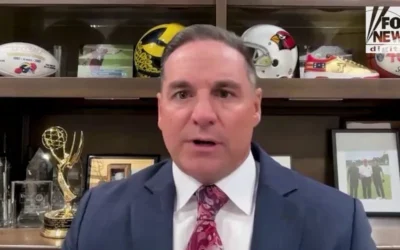Understanding the Fallout: Bill Owens’ Resignation from ‘60 Minutes’
In a surprising turn of events, Bill Owens, the executive producer of the revered CBS news program 60 Minutes, has resigned, citing a loss of independence in his role. This development arrives at a tumultuous time for the program, particularly in light of ongoing legal battles involving former President Donald Trump, who has recently initiated lawsuits against the show.
The Legacy of ‘60 Minutes’
For over five decades, 60 Minutes has set a benchmark for investigative journalism, renowned for its rigorous reporting and thought-provoking interviews. The program has been instrumental in holding power accountable and shedding light on underreported stories. However, it operates in a media landscape increasingly fraught with challenges, including political polarization, misinformation, and corporate influence.
Bill Owens’ Tenure at ‘60 Minutes’
Owens took the helm of 60 Minutes during a critical period. Having joined CBS in 2000, he was appointed executive producer in 2017. His tenure included high-profile interviews with politicians, activists, and pivotal figures in various sectors, showcasing his dedication to upholding the show’s journalistic integrity. But as the political climate shifted, Owens found himself navigating increasingly treacherous waters.
The Trump Lawsuits: A Pivotal Context
Recent lawsuits filed by Donald Trump against 60 Minutes have heightened tensions surrounding the program. These lawsuits allege inaccuracies and intentional deception in reporting, which Trump claims undermined his reputation and public image. While these legal maneuvers are part of a broader strategy by Trump to combat media narratives he finds unfavorable, they illustrate the growing friction between powerful political figures and traditional news media.
Acceptance of Corporate Pressures?
In his resignation statement, Owens indicated he felt the weight of corporate pressures in an era where the influence of money on journalism cannot be understated. The narrative that media organizations prioritize ratings over integrity echoes strongly in his message. The embattled environment has prompted questions about editorial independence and whether so-called ‘corporate interests’ have begun to erode the foundational values of journalistic practice.
Reflections from Current and Former Colleagues
Colleagues and professional peers have expressed mixed feelings about Owens’ departure. Many recognize the challenges that come with producing content in a politically charged atmosphere, particularly when engaging with polarizing figures like Trump. Some have noted that unresolved tensions may have contributed to Owens’ decision, suggesting he sought to preserve his principles rather than compromise under external pressures.
The Broader Implications for Journalistic Integrity
Owens’ resignation raises critical questions about the future of journalism. How can traditional media organizations remain bastions of truth and accountability when faced with aggressive attacks from political leaders? In times of crisis, can producers and journalists balance those pressures while maintaining their commitment to accurate and ethical reporting?
Looking Ahead: What Next for ‘60 Minutes’?
As 60 Minutes grapples with this shake-up, the organization must navigate an uncertain future. The departure of a high-profile figure like Owens may compel CBS to reflect on its editorial structures and decision-making processes. Dialogue on journalistic ethics is more crucial than ever, considering potential ramifications on public perception and trust in traditional media.
Call for Transparency and Responsibility
In an age where misinformation and media cynicism are rampant, the public demands transparent and responsible journalism. The challenge now awaits 60 Minutes and its new leadership team to reaffirm its commitment to those principles. As editorial changes unfold, viewers will be keenly watching how the program approaches its storied legacy while addressing modern challenges.
Conclusion: The Cost of Independence
Bill Owens’ resignation serves as a poignant reminder that the stakes in journalism extend far beyond individual careers. It underscores the conflict between professional integrity and external pressures that journalism faces in today’s divided landscape. As one chapter ends, another begins for 60 Minutes. The need for introspection, renewed commitment to journalistic standards, and unwavering resolve to uphold the truth is essential for the continuation of one of the most storied programs in American television history.







